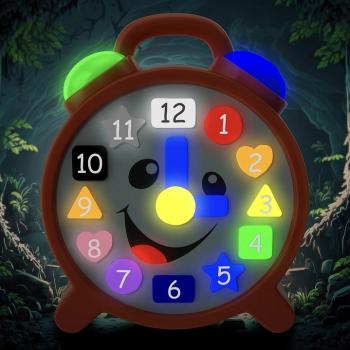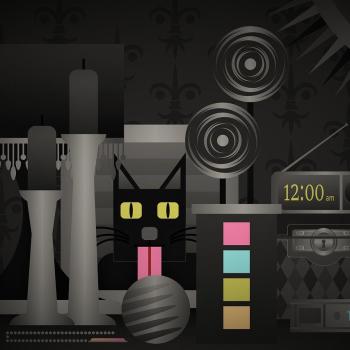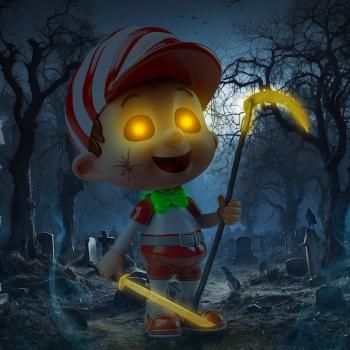
I was going back over all the stuff I’ve written for this blog so far, and I noticed that I’ve brought up geomancy several times, but I’ve never really explained what it is. So let’s fix that.
At its core, geomancy is a binary system of divination: a question is asked, and in response, random numbers are generated (traditionally by making marks in sand or on paper, but dice and playing cards work well, too). These numbers are broken down to even and odd, represented by two dots or one dot, arranged into a series of figures, and plugged into an astrological chart.
The chart is interpreted based on the individual meanings of the figures, their positions, and how they interact with one another, to get one of three kinds of answers:
- “Yes/no.”
- “Yes/no, and here’s why.”
- “Yes/no, and in this essay, I will…”
And even though you’re just looking at a bunch of dots, a story becomes clear, with its own introduction, exposition, climax, and conclusion.
In theory, geomantic divination is a lot like that scene in The Matrix, where Cypher explains the stream of strange, green symbols on his monitor: “I don’t even see the code. All I see is blonde, brunette, redhead.” But in practice, it’s like that scene in Lady in the Water, where a roomful of panicky people hang on the words of a little kid who has been charged with delivering a crucial message in a life-or-death situation, but must do so (spoiler alert) by interpreting the images on cereal boxes.

Fortunately for my stress levels, my friend Sam runs an educational geomancy forum, where people post charts, and then we have lively discussions about them. I don’t comment very often — I mean, I’ve got talent and a modicum of skill, but Sam and some of the other group members can geomance circles (or, more accurately, squares) around me, so I mainly just stay out of their way.
But the other day, someone asked, “Why is Amissio strengthened in the Second House of a geomantic chart?” And I was like, Ooh! I’d like to buy a vowel and solve the puzzle, Pat Sam!
“The Second House represents value, earnings, material wealth, etc.'” I said. “Amissio means ‘loss,’ so when it appears in the Second House, it has a pretty undeniable meaning — hence it’s strengthened.”
“So ‘strengthened in the Second’ means ‘especially notorious loss’?”
“I would say so, yes. Or strong loss.”
“Oh, okay!” the OP replied. “I took ‘strengthened’ to mean, ‘This is a good place for this figure’ and thus something favorable. But it’s actually a bad thing for the querent, since the Second House is associated with Taurus, and Amissio (of Venusian nature) has all the resources it needs in that position to fully manifest its core meaning, loss.”
“Exactly!”

And then a random group member jumped into the convo and announced, “Amissio is a sign of growth and gathering, not emptiness. It represents a time of harvest.”
And… I got so angry, y’all. And it takes a lot for something on the Internet to make me angry (which, considering some of the hate mail I’ve received since starting this blog, speaks volumes about my moral fortitude).
Call it a pet peeve or control issues or what have you, but I lose my tenuous grip on patience whenever negative connotations are removed from divinatory archetypes. A friend of mine once purchased a Celtic-esque Tarot deck, in which the Devil card had been replaced with “The Green Man.” There was no Devil in Paganism, the deck’s creator explained in the accompanying guidebook, so there was no need for such a card in the Tarot. The Green Man — symbolizing nature’s bounty and gentle, paternal guidance — was ever so much more appropriate.
One wonders how the Green Man relates to the obsessions and addictions foretold by the Devil, but one sincerely hopes it translates as, “You, alright?! I learned it by watching you!”

Symbols have meanings, and those meanings have power, and we accept that ignoring symbolic warnings in the “real” world results in consequence (as anyone who’s run a red light in front of a cop can attest). But the logic that keeps us from doing so is nowhere to be found when we’re posting to Facebook like, “A bird flew into my house yesterday, and I know that traditionally this means there will be a death in the family, but does anyone know if it could possibly have a positive meaning instead? Also, the bird killed my dog.”
When reading for other people, I’ve only left out the negative meanings of a geomantic figure once, and while it didn’t bite me in the ass per se, it did make the situation a lot more uncomfortable for both me and the querent. And it was a hard but necessary lesson in geomancer roles and responsibilities: Attempting to shield a querent from what the dots are trying to tell them will not magically engineer a favorable outcome.
Here’s that story.
A local occult shop decided to host a psychic fair, and I volunteered to be a reader. I was ensconced behind a folding table, clutching my deck of geomancy cards and feeling quite professional, when this guy wandered over and asked for a reading.

I gave him a brief but thorough explanation of geomantic divination, and I asked what specific situation he’d like to discuss. There wasn’t one, he said. He just wanted a general reading. I cringed a little on the inside.
Even in the most casual of circumstances, I don’t enjoy giving general readings. It’s entirely too easy to let them morph into metaphysical dog-and-pony shows. You end up telling people stuff they already know about themselves, and they walk away suitably impressed with your Mighty Psychic Abilities®, which is not in any way useful or satisfying unless you plan to establish yourself as a New Age guru. (I don’t.)
Now, there is a way to interpret a geomantic chart to answer a question the querent doesn’t want to vocalize, but this guy was adamant: No questions whatsoever, nothing in particular he wanted to know, just a general reading, please. Resigning myself, I shuffled my deck, pulled the first card, and…

Rubeus. The overturned goblet; the obfuscating censer. The querent is being dishonest.
Not the most auspicious of introductions.
Historically, there are a couple of ways to react when Rubeus leads in a reading. The Hermetic Order of the Golden Dawn recommends destroying the chart and refusing to attempt another divination for several hours, but this strikes me as a wee bit melodramatic. Instead, I paused for a second, meditated on the basic meanings of the figure, and told him he was passionate, yet reserved. He agreed, and with that out of the way, we started working our way around the chart.
Finances, good. Homelife, good. Kids, good. Health, very good: Laetitia in the Sixth House, joy and happiness, vitality, a strong constitution, and also a bit of luck.
Considering Houston’s lengthy, debilitating flu season and the overall quality of our air, I mentioned that there was a chance he was either exposed to something and fought it off before any symptoms developed, or that he simply wasn’t exposed to anything, even if the people around him were.
He didn’t respond to this, so I kept going.

Romantic relationships, iffy. Opportunities for travel, decent. Then we got to career, and I realized I’d completely miscalculated this area of the chart, which was beyond embarrassing – I was supposed to be a professional. So I was rearranging the figures and trying to determine where I went wrong and having a mild panic attack when he asked, “Do you want to know what I do for a living?”
“Sure,” I said. And he told me.
Employed by a local energy company. Blue-collar work, mainly laying pipe. Liked his job, but recently, several co-workers had gotten sick. Really sick. Two had cancer. Another had died of it.
“I’ve been worried that we were all exposed to something carcinogenic and that I might get sick, too,” he said, pointing to the figure in the Sixth House. “But then, after what you said… I’m just relieved.”
The books and Web sites and correspondence courses don’t prepare you for things like this.
They don’t prepare you for a querent who’s so scared about what might happen that he’s opted to have his fortune told over seeking medical attention.
They don’t prepare you for the overwhelming urge to grab someone by the shirtfront and scream, “Go see a fucking doctor NOW.”

But at the same time, you are not where you are to put your own spin on the situation, or to advise, or to beg, or to plead. You’re there to interpret what the cards/runes/dominoes/entrails have to say, and to hand that information over to the person sitting across from you, and to accept that it’s their job to figure out what to do next. Not yours.
Anyway, I finished the reading. The guy thanked me, left a (non-tax-deductible) donation, and took off. On the one hand, I’m glad he heard what he wanted to hear — not every reading works out that way. On the other, I continue to hope he took what he heard with a grain of salt, and followed up by doing what he could to ensure his well-being.
True divination is the art of understanding that “accurate” doesn’t always mean “right.”


















